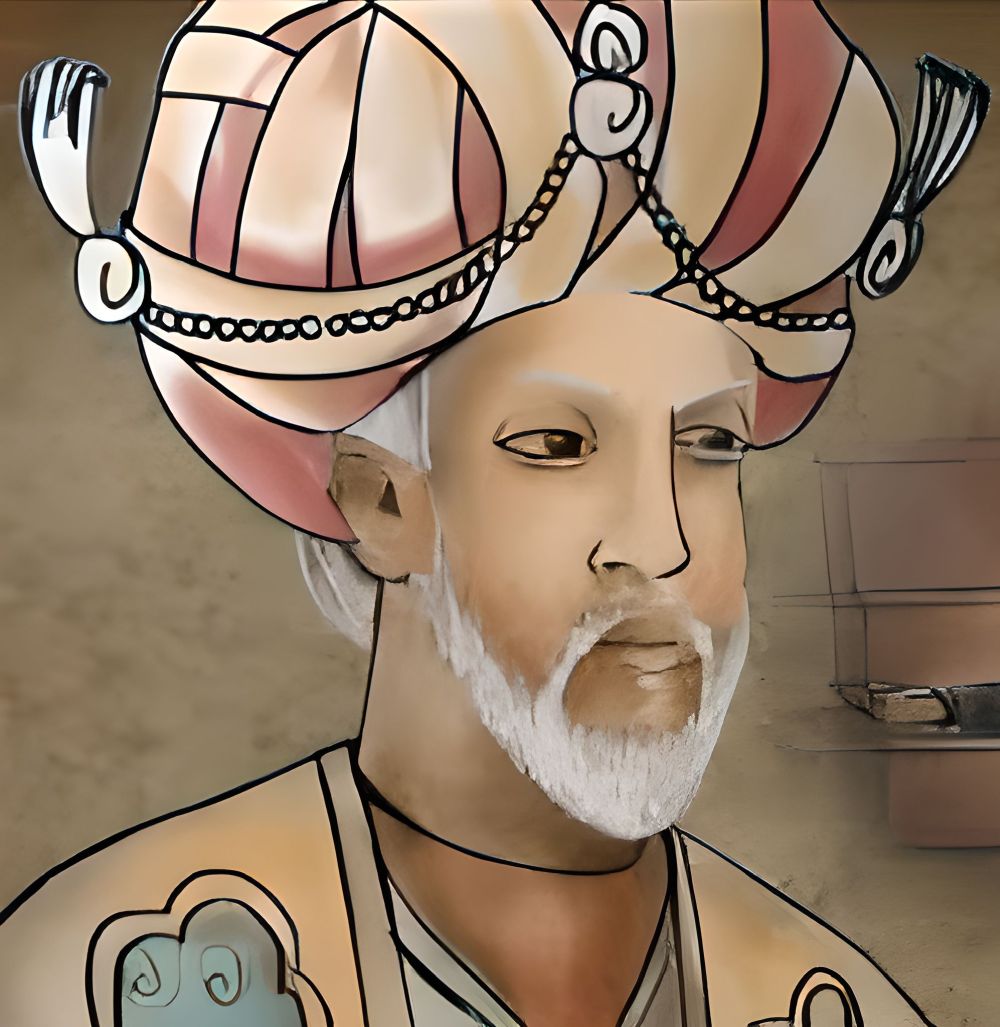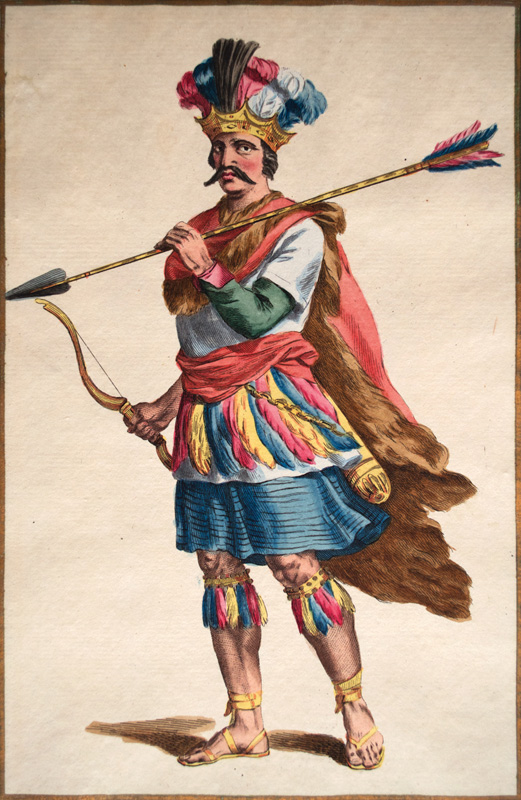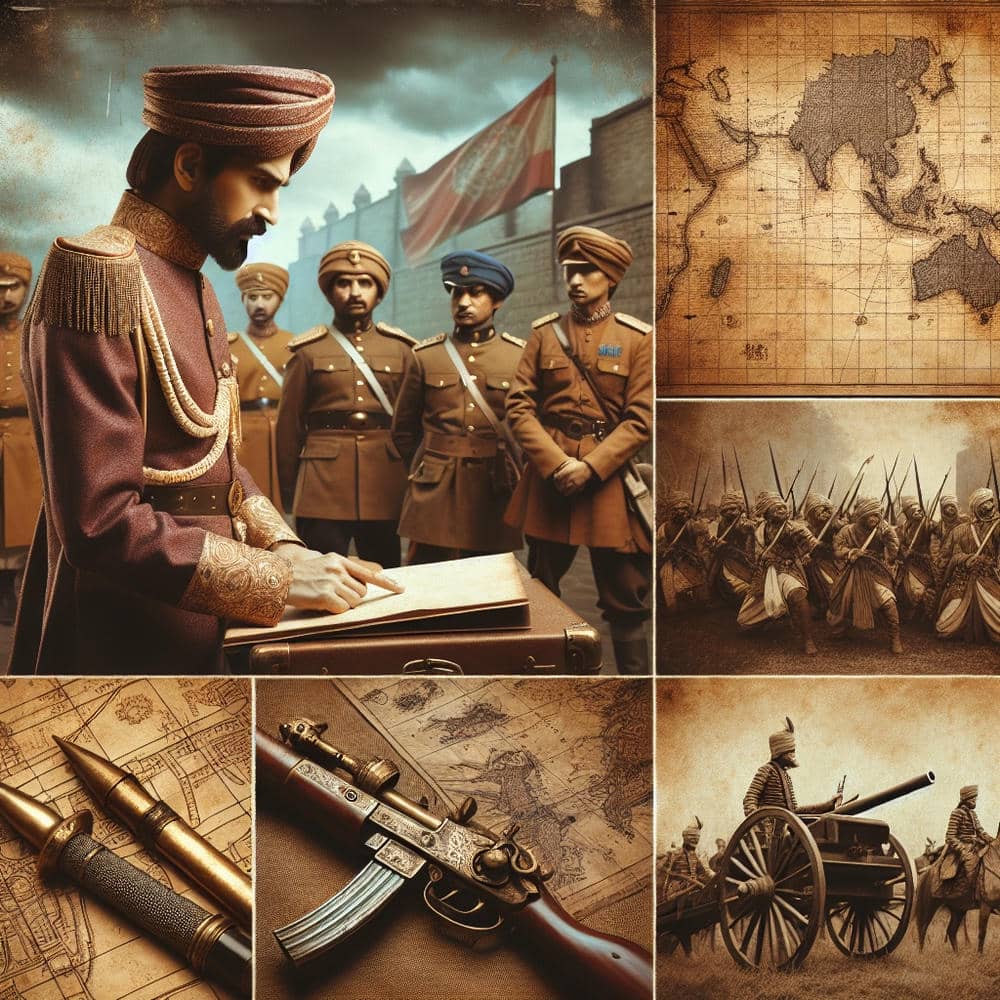Story of Hyder Ali of Mysore
From Soldier to Sultan
Rising from humble beginnings

Introduction to Hyder Ali of Mysore
The story of Hyder Ali of Mysore (India) is one that inspires and intrigues simultaneously, and prompts us to know more about him.
Have you ever wondered how someone could rise from humble beginnings to become a powerful ruler?
His life is an amazing journey of determination, strategy, and innovation that reshaped the history of southern India.
He was born into a military family, Hyder Ali's journey from a soldier to the Sultan of Mysore is filled with dramatic twists and turns that could rival any epic tale.
In this short article, you will get an overview of his personal story and early challenges and also his strategic maneuvers and military skills that led him to power.
Also touching some key events that define his life, his innovative leadership style, his impact on Mysore, and finally, his lasting legacy so that you get a basic understanding of Hyder Ali's incredible journey and how he influenced the history of India.
The early years of Hyder Ali
Hyder Ali was born in 1721 in a modest military family in Budikote, near Kolar in Karnataka.
Growing up, he was exposed to the harsh realities of military life early on.
His father, Fateh Muhammad, was a commander in the service of the Wodeyars of Mysore.
From a young age, Hyder Ali was trained in military tactics and the use of weapons, developing a knack for strategy and leadership.
However, his influential experiences came from participating in several military campaigns alongside his father.
These ventures offered young Hyder a firsthand look at the intricacies of battlefield dynamics and court politics.
As he grew older, his zeal, coupled with his understanding of warfare, positioned him as a formidable soldier, ready to take on responsibilities and challenge the status quo.
The rise to power
Hyder Ali's initial military encounters were in the Mysorean army as a young commander.
His skills earned him quick promotions and recognition.
A critical moment in his rise was his involvement in the siege of Devanhalli in 1749, which placed him in the limelight as a fearless leader.
Forming strategic alliances played a huge role in his ascent.
He understood the importance of aligning with the right forces, such as warriors from the neighboring regions.
One of the significant turning points was his alliance with the French, who were embroiled in their own battles against the British.
With superior French artillery and tactical support, Hyder Ali was able to enhance Mysore's military capabilities.
Eventually, his increasing influences and successful campaigns positioned him to seize control of Mysore in 1761, marking the beginning of his reign as Sultan.
Key events in Hyder Ali’s life
One of his major victories was against the Marathas at the Battle of Rattihalli.
In addition, there were many other battles and victories in which Hyder Ali showed his leadership skills.
His clash with the British East India Company in the First Anglo-Mysore War (1767-1769) showcased his military genius.
Guerilla Warfare
Hyder Ali due to his keen interests in military strategy, learned and sharpened his skills in guerilla warfare which became his differentiating factor in the military strategy warfare and especially against the British who were not fully adept at it.
His strategy of guerrilla warfare baffled his enemies especially the British and achieved remarkable success.
The Treaty of Madras in 1769, which ended this conflict, allowed Mysore significant territorial advantages and the return of its occupied lands.
Military & Administrative Reforms

Hyder Ali made many innovative reforms in Mysore’s army, making it one of the most formidable forces in the region.
His ground-breaking administrative changes and modernization efforts set Mysore on a path of prosperity.
Hyder Ali was not just a military strategist; he was also an adept administrator.
His leadership style was marked by pragmatism and a keen understanding of his soldiers' and citizens' needs.
He introduced several administrative reforms to streamline governance.
For example, he improved tax collection methods and was known for his swift justice system.
Militarily, he reorganized Mysore’s armed forces, integrating training techniques and weaponry inspired by European models, particularly from his French allies.
This modernization made Mysore's military one of the most powerful in the region.
His ability to balance military might with efficient administration earned him respect and loyalty from his subjects, ensuring stability and growth during his reign.
These key events not only solidified his power but also etched his name in history as an indomitable force.
Economy & Agriculture
During Hyder Ali's reign, Mysore saw significant economic policies that boosted its prosperity.
He prioritized agriculture, introducing innovative irrigation techniques, thereby increasing productivity and ensuring food security.
Trade flourished under his rule due to his establishment of secure trade routes and marketplaces.
Culture & Society
His influence extended beyond economics into culture and society, where he promoted arts and encouraged religious tolerance, creating a culturally rich and cohesive society.
Infrastructure development was another cornerstone of his reign.
He commissioned the construction of roads, fortresses, and public buildings, which not only improved the kingdom’s defense but also enhanced the day-to-day lives of its citizens.
All these actions significantly improved the quality of life in Mysore, showcasing his vision as a ruler.
Family and succession
Hyder Ali's family played a crucial role in his governance.
He was married to Fakhr-un-Nissa, and together they had several children, the most notable being Tipu Sultan of Mysore.
Hyder Ali took good amount of time to devote his energies in educating his children to ensure that his children were well-educated, preparing them for future responsibilities.
His family was actively involved in governance, providing advice and assisting in administration.
Notably, his wife managed certain affairs of the state, showcasing the progressive nature of Hyder’s governance.
Succession was meticulously planned.
Hyder Ali groomed Tipu Sultan, his eldest son, for leadership from an early age, involving him in military campaigns and administrative matters.
This foresighted succession planning ensured that Mysore remained strong and stable after his demise, with Tipu Sultan continuing his legacy.
Legacy of Hyder Ali
Hyder Ali's legacy is deeply etched in the history of Mysore and he is still remembered for many things and achievements despite final British victory over him.
Historically, he is seen as a transformative ruler who brought about military and administrative changes that shaped the kingdom’s future.
His significant influence on successors, particularly Tipu Sultan, ensured the continuation of his policies and the enhancement of Mysore's strength.
Modern historians view him as a pioneering leader who managed to hold his ground against formidable opponents like the British East India Company.
His innovative approaches in administration and warfare are still studied for their ingenuity and effectiveness.
The widespread respect and admiration for Hyder Ali reflect his ability to lead with a vision that transcended his time, leaving an indelible mark on Indian history.
Conclusion: Reflecting on Hyder Ali’s life

In conclusion when we try to reflect on Hyder Ali’s life, we see a journey of an extraordinary leader who transformed Mysore through his military acumen, administrative reforms, and progressive policies.
He was a visionary who understood the nuances of governance and warfare, using them effectively to rise from a soldier to a Sultan.
The key takeaways from his story include the importance of strategic alliances, the impact of innovative reforms, and the significance of preparing the next generation for leadership.
For general reading you may also read Wikipedia on Hyder Ali.
You may also browse other History Stories & Articles on IdeasBeat